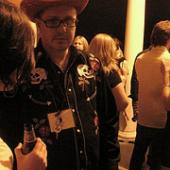What's wrong with best of lists?
Editorial

We’ve entered a very specific season, one that starts just as Christmas ends and continues until just after the new year: the season of Best Of lists. Properly, this should be the season of caveats, as each end-of-the-year summary is fraught with problems, some of which I will detail. They’re done for a few reasons, none of them especially good. The first, and probably best, is that we have a compulsive need to try and summarize our past year. We’re a species that marks time, and makes calendars, and, arbitrary though those these markings might be, we like to fit the meaningful details of our lives into these discreet units of time. So a year has past, and we look backward. What did we accomplish? What did we fail at? Who died? And what was done better than anything else?
It used to be that journalists and editors responded to lists with a gesture somewhere between a shrug and a sneer. Enumerating the accomplishments of the past is neither especially hard nor is it news, even when dealing with the recent past. These sorts of lists provide no new information, and do little but summarize the idiosyncratic tastes of the writer. But they’re undeniably popular, and have become one of the favorite techniques of Web sites looking for link bait. Just look at popular sites, you’ll see a huge number of lists with titles like “10 of history’s weirdest popes,” or “25 things you didn’t know about Star Trek.” They’re fast, light, fun reads, and it might be why people respond to them. City Pages published the topmost read posts on “Dressing Room,” their arts blog, and eight of the top 10 were lists of one sort or another, including “Top 7 scariest fandoms,” “Top ten memorable celebrity twins,” and “Top 5 homophobes who turned out to be gay.” As City Pages seems especially keen to repeat whatever works, we can probably expect a lot more of this sort of thing, even if it turns one of our few alternative publications into a regional variation of the online version of Cracked Magazine.
But, in the past, newspeople were encumbered by a bias toward news, and so tended to pish posh at lists. I suspect they only tolerated them at the end of the year because, especially as regards the arts, there just isn’t that much going on. Everybody has completed their Christmas show, and as a result there is a several week hiatus before something new springs up in its stead. And so, why not? When there is nothing else to do, one might be allowed to bend to the public will. And why do the public like lists? I can think of two reasons, offhand. The first is they like to know what they missed. This is especially useful with things like films and cds, because they can watch the supposed best films on NetFlix and purchase the supposed best music through iTunes. It’s a bit less useful with something like performance, where, once a performance is concluded, it’s done; but if you are a patron of the arts, this is the sort of thing that can alert you to a theater or dance troupe worth checking out next year, or down the road.
More than that, I think people like these sorts of lists because they like to argue with them. We all have our own sensibilities, and it isn’t likely any list will thoroughly jibe with our preferences. There will always be something absent that we feel certain should be present, and something included that we feel any sane critic would have disincluded. Best of lists are always too popular, including too many crowd-pleasers, unless they are not, in which case they are too snobbish, containing only deliberately obscure pieces intended for the pretentiously avant garde. Best of the year lists exist to be learned from and derided simultaneously. This sort of thing comes precipitously close to trolling -- that advanced online art of being provocative only for the purpose of getting somebody’s dander up.
Critics will sometimes try to escape this sort of thing. Dominic Papatola didn’t bother with a best of list this year, perhaps because, since he has stepped down from full-time employment as the Pioneer Press’ theater critic, he just hasn’t seen a comprehensive enough swath of theater to be able to pinpoint the best. Instead, he decided to offer a list of the plays that “made a difference” this past year, which is an interesting approach, albeit one that I think is fundamentally flawed. Its flaw is this: Dominic has no idea what plays made a difference this past year. Neither do I, or does anybody. If you look at Dominic’s list, it’s essentially the plays that impressed him, but what really makes a difference? Theater changes slowly and in unexpected ways, and I would wager that “The Master Butcher’s Singing Club” closing early at The Guthrie might have a larger impact on the local theater scene than any single event this past year, although I’d be beggared to tell you how. We probably won’t know the full effect of this for two years or more.
Is there value in such lists? Well, perhaps. The one thing that they can do is allow an audience member to take stock of their own tastes, and compare them against the tastes of a critic. This can be a useful exercise in gauging their future reviews -- they may tend to like things you don’t and vice versa. If you’re the sort of person who looks at reviews when deciding what you’re going to see, this sort of sense of a critic’s tastes can be invaluable. And for those of us who make theater, these sort of lists can serve a fairly crass commercial purpose, if we wind up on them. It can be a great promotional boon to have something you did declared the best of the year by a critic. It’s an interesting bit of mutual back scratching, in that a publication gets to fill some space and attract some readers, and a production company gets to accumulate laurels and attract some audience members. Otherwise, well, if you enjoy arguing with a piece of paper, a best-of the year list can be a lot of fun for a few hours. But as an annual critical assessment of excellence? It just ends up being an inventory of artistic prejudices, idiosyncratic tastes, and the necessary limitations of not being able to see every piece of art produced. It’s a sort of journalism more defined by its failings than its successes, and there’s something a bit peculiar about using journalism’s most flawed form to celebrate the best of anything.




